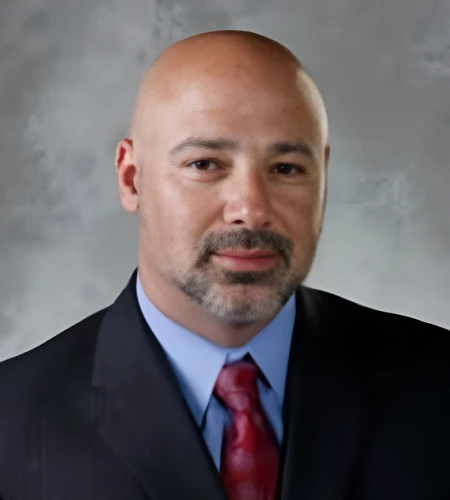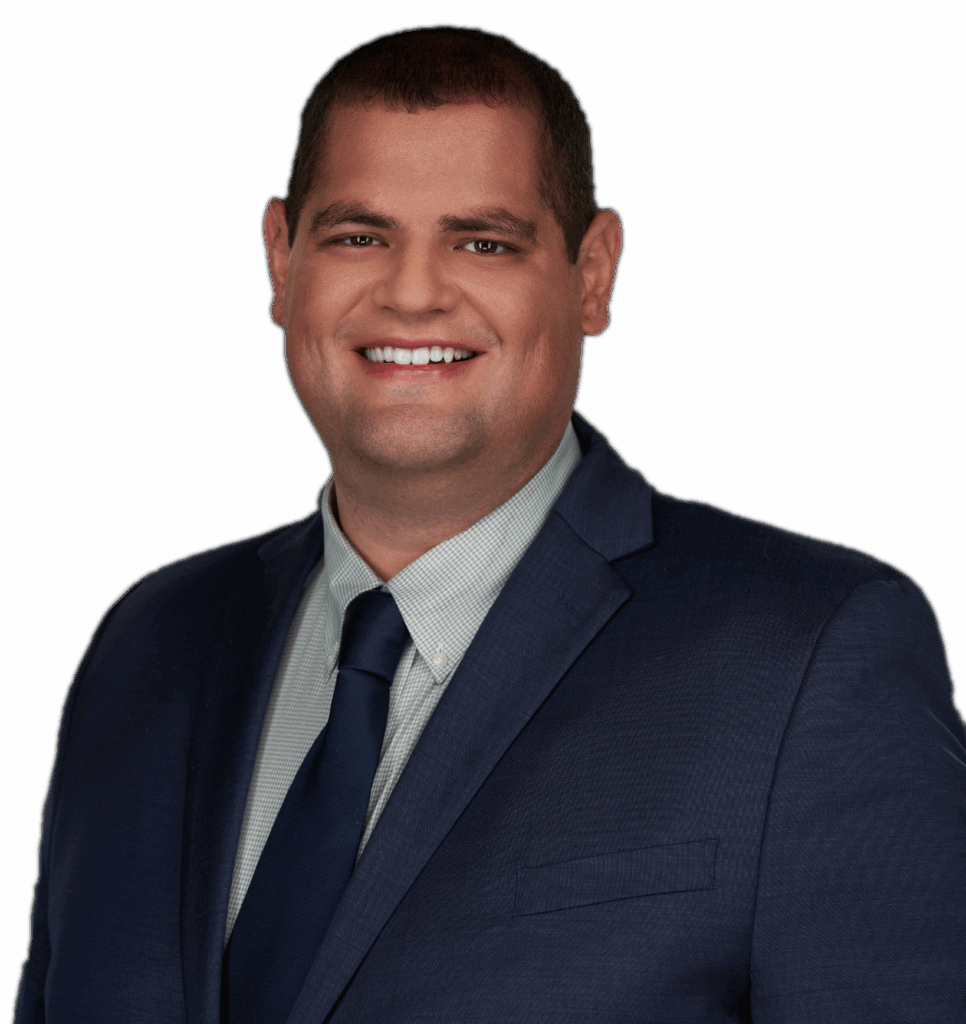Educational institutions are supposed to be places of safety and growth. When an act of sexual violence breaks that trust, the impact is devastating. If you are a survivor of sexual assault that occurred at an educational institution, a New York school sexual abuse lawyer pursues justice on your behalf.
A civil lawsuit against a school, university, or other institution is a separate action from any criminal proceedings. It is a legal tool that holds the organization accountable for its failure to protect you.
This process is about reclaiming your power and demanding accountability from the very institutions that were entrusted with your well-being, whether the events happened near Columbia University's campus or in a public high school in Buffalo.
Your civil case focuses on the institution's responsibility. This legal action addresses how the school’s actions or inaction contributed to the abuse. The purpose is to secure compensation that aids your recovery and to force changes that protect future students.
- A civil claim seeks financial damages from the responsible institution.
- The focus is on the school’s negligence, not just the abuser’s actions.
- You, the survivor, control this legal path, not the state.
Bringing a civil action sends a clear message that institutional negligence has severe consequences, compelling systemic changes to safeguard students.
Table of Content
- The Role of a New York School & University Sexual Abuse Attorney
- New York's Statutes of Limitations
- Types of Compensation in a Civil Claim
- Why Choose Horowitz Law for NY School & University Sexual Abuse
- Frequently Asked Questions
- Schedule Your Free Legal Consultation
Holding New York Educational Institutions Accountable

Schools and universities across New York have a legal duty of care to their students. A duty of care is a legal obligation to act with a reasonable amount of caution to avoid harming others.
When a school fails in this duty, it is considered negligent. Negligence in this context means the school did not take appropriate steps to prevent foreseeable harm, including sexual abuse by staff, faculty, or even other students. The law recognizes that these institutions have significant control over the environment and are responsible for creating and maintaining a safe setting.
This responsibility extends to all facets of student life, from classrooms and libraries to dormitories and athletic facilities. An institution demonstrates negligence when it ignores warning signs, fails to enforce its own safety policies, or retains an employee with a known history of misconduct. In such cases, seeking guidance from an experienced New York sexual abuse lawyer can help survivors understand their rights, hold negligent institutions accountable, and pursue the justice they deserve.
These failures create an environment where abusers are emboldened and students are left vulnerable.
- Negligent hiring and retention: The school hired or kept an employee despite knowing, or having reason to know, they posed a risk to students.
- Failure to supervise: The institution did not adequately monitor staff, volunteers, or student interactions, allowing abuse to occur.
- Ignoring complaints: The school received reports or saw red flags about an individual’s behavior and did nothing to investigate or intervene.
The foundation of institutional liability rests on the principle that these powerful organizations must prioritize student safety over protecting their own reputation.
The Role of a New York School & University Sexual Abuse Attorney

A New York school and university sexual abuse attorney serves as your advocate in the civil justice system. Their role is to build a case demonstrating the institution’s liability for the harm you endured.
This process is entirely separate from any criminal investigation handled by prosecutors and focuses on punishing the perpetrator. A civil lawsuit, by contrast, focuses on compensating the survivor and holding the organization financially responsible for its role in the events.
Your attorney manages every aspect of the legal process, allowing you to focus on your well-being. Your legal representative works to uncover evidence of the school’s failures. This involves a detailed investigation into the institution’s policies, hiring practices, and any prior complaints made against the abuser.
The goal is to construct a powerful argument showing that the school’s negligence was a direct cause of the abuse.
- Conduct a Thorough Investigation: Your attorney gathers documents, interviews witnesses, and collects evidence to prove the school's or university's failure to protect you.
- File the Civil Lawsuit: They draft and file the necessary legal documents that formally begin the case against the institution.
- Represent You in All Proceedings: Your lawyer handles all communications with the school's legal team, negotiates on your behalf, and, if necessary, argues your case in court.
Through civil litigation, a survivor transforms a private injury into a public demand for accountability, using the law as a tool to expose and rectify institutional wrongs.
New York's Statutes of Limitations

New York law sets specific time limits for filing civil lawsuits, known as statutes of limitations. A statute of limitations is a law that sets the maximum amount of time that parties have to initiate legal proceedings from the date of an alleged offense.
For survivors of sexual abuse, these laws are particularly meaningful. While the historic one-year lookback window of the Adult Survivors Act (ASA) closed in November 2023, its existence demonstrated a legislative commitment to providing pathways to justice for adult survivors of abuse that occurred when they were over 18.
The Child Victims Act (CVA) previously did the same for survivors of childhood abuse. Even with these windows closed, New York's standard statutes of limitations still provide avenues for justice.
The time you have to file a claim depends on many factors, including your age when the abuse occurred and the specific details of your case. It is a mistake to assume too much time has passed without exploring your options.
- The ASA temporarily lifted the statute of limitations for most adult survivors.
- It allowed individuals to file claims for abuse that happened many years or decades ago.
- The law targeted not just individual perpetrators but also the institutions that enabled them.
Laws like the ASA and CVA show that legal standards evolve, reflecting a deeper societal recognition of the lifelong impact of sexual abuse and the courage it takes for survivors to come forward.
Types of Compensation in a Civil Claim

A civil lawsuit seeks financial compensation, legally referred to as damages. Damages are the monetary award paid to a person as compensation for loss or injury.
The purpose of these funds is not to erase what happened but to provide the resources necessary for a survivor's recovery and to acknowledge the profound harm they have suffered.
In a school sexual abuse case, damages hold the institution financially accountable for its failures and provide you with the means to rebuild. Compensation is typically categorized into two types.
Economic damages cover direct financial losses, while non-economic damages address the intangible, personal suffering caused by the abuse. Both are calculated to reflect the total impact the abuse has had, and will continue to have, on your life.
- Economic damages: This includes compensation for therapy and counseling costs, lost wages or diminished future earning capacity, and other tangible financial losses resulting from the trauma.
- Non-economic damages: This category addresses physical pain, emotional distress, mental anguish, and the loss of enjoyment of life.
- Punitive damages: In some cases, a court awards punitive damages. These are not meant to compensate the survivor but to punish the institution for extreme or malicious negligence and to deter similar conduct in the future.
The pursuit of damages is a legal recognition that healing has a real, tangible cost, and the responsible party should be the one to bear it.
Why Choose Horowitz Law for NY School & University Sexual Abuse
Legal Guidance?

Horowitz Law is a firm with a singular focus: representing survivors of sexual abuse in civil litigation. We do not handle car accidents, medical malpractice, or any other type of personal injury case.
This exclusive dedication means that every resource, every strategy, and all of our experience is channeled into one mission, seeking justice for survivors. Our attorneys understand the unique sensitivities and legal strategies involved in cases against powerful institutions like schools and universities.
We are advocates who stand with survivors. Our team provides a supportive and empowering environment from the first confidential conversation. We handle the legal fight so you are free to concentrate on what matters most, your healing journey.
Our approach is direct, determined, and centered entirely on your needs and goals.
- Exclusive focus: Our practice is dedicated solely to sexual abuse litigation. This provides a depth of knowledge that general practice firms lack.
- Survivor-centered advocacy: Your story, well-being, and goals are our legal strategy's foundation. We listen and we act on your behalf.
- A record of holding institutions accountable: We have a history of confronting powerful organizations and securing meaningful results that force institutional change.
Choosing a legal advocate means selecting a partner for your fight for justice, and Horowitz Law is built for this specific battle.
Your Path Toward Justice

Deciding to pursue a legal claim is a courageous step toward accountability. It is an affirmation that what happened to you was wrong and that the institutions responsible must answer for their failures.
This journey is not just about a legal outcome; it is about reclaiming the narrative and ensuring your voice is heard. The legal system provides a platform to expose wrongdoing and demand changes that will protect others from suffering a similar fate.
By taking action, you are moving from a position of silence to one of power. You are forcing a conversation that many institutions would prefer to avoid and shining a light on practices that have been allowed to continue in the dark for too long.
Your case becomes a catalyst for reform.
- You hold a powerful institution accountable for its negligence.
- You obtain resources to support your long-term healing.
- You contribute to making educational environments safer for everyone.
The pursuit of justice is a powerful act of self-advocacy that can transform personal trauma into a force for public good.
Frequently Asked Questions
What is the statute of limitations for school abuse in New York?
The time limit, or statute of limitations, to file a lawsuit in New York varies based on several factors, including the survivor's age at the time of the abuse and when the abuse was discovered.
While major lookback windows have closed, other legal avenues often remain open. It is best to discuss the specific details of your situation with an attorney to determine the deadlines that apply to you.
Will I have to see my abuser in court?
Most civil sexual abuse cases are resolved through a settlement before ever reaching a trial. A settlement is a formal agreement to end a lawsuit, usually involving a financial payment, that is negotiated between the parties.
If your case proceeds to trial, you may have to provide testimony, but your attorney will prepare you for every step of the process. The focus of the civil case remains on the institution's failures, not solely on the abuser.
Is my case confidential?
Your initial consultation with an attorney is completely confidential. If you decide to file a lawsuit, court filings are generally public records. However, your attorney can take legal steps to protect your privacy, such as filing the case using "Jane Doe" or "John Doe" to shield your identity from the public record.
How much does it cost to hire an attorney?
Attorneys at our firm handle these cases on a contingency fee basis. A contingency fee means you pay no legal fees unless and until we win your case by securing a settlement or a court verdict in your favor.
The attorney’s fee is a percentage of the financial recovery, so you have no upfront costs. The information on this website is for general information purposes only. Nothing on this site should be considered legal advice for any case or situation.
This information is not intended to create, and receipt or viewing does not constitute, an attorney-client relationship.
Schedule Your Free Legal Consultation
Your story deserves to be heard. Your fight for justice starts now. Contact the attorneys at Horowitz Law for a free, completely confidential consultation to discuss your legal options. Call us at (954) 641-2100 today.